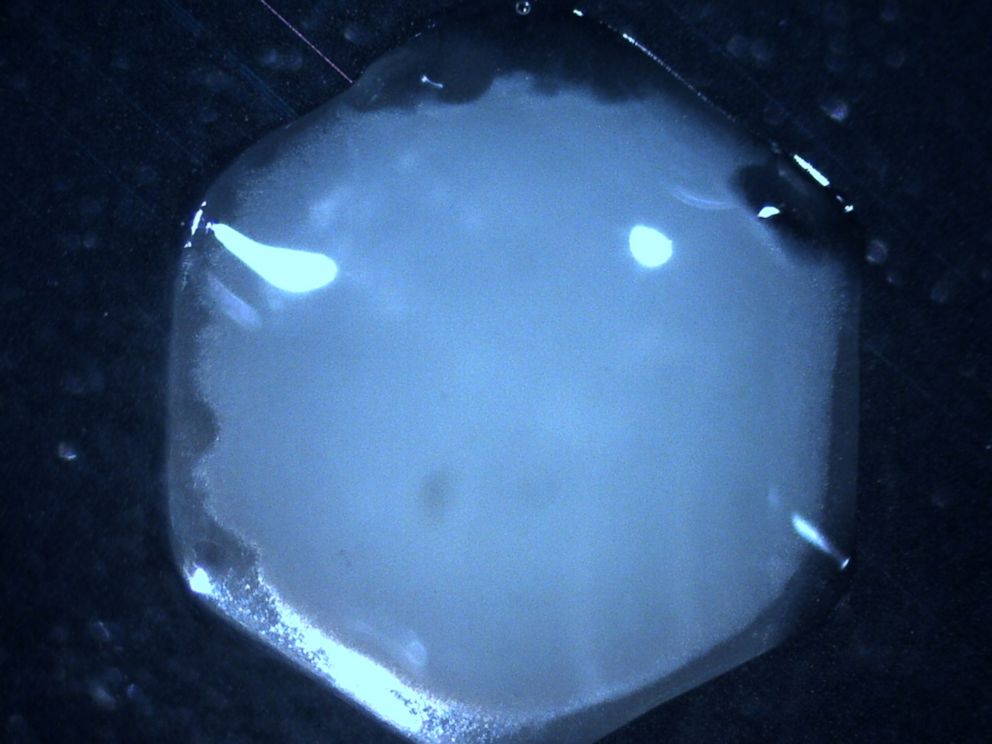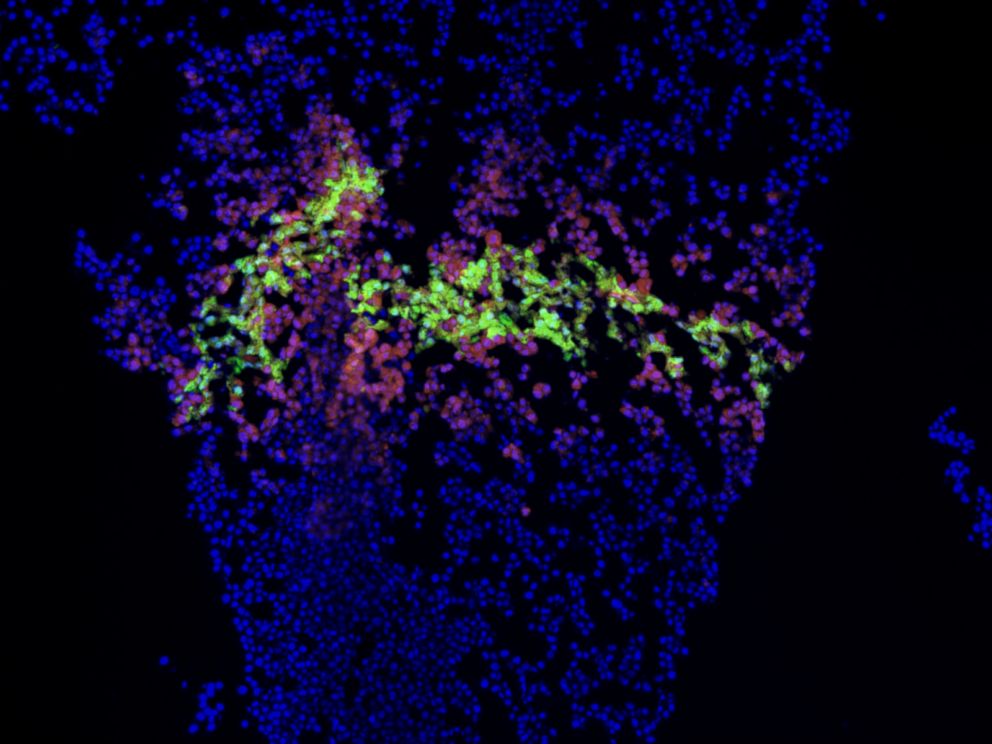Company Creates Tiny Livers With 3-D Printer to Test Drugs
A California company is selling "tiny livers" for drug tests.
— -- A San Diego company has created human liver tissue with a 3-D printer designed to be used by drug companies for testing.
The feat achieved by Organovo may seem like science fiction but more and more researchers and scientists have been examining how 3-D printers can be used to "create" human tissue for research purposes.
The "tiny livers" are "bioprinted" with a specially designed 3-D printer and are composed mainly of three kinds of human liver cells, the company announced this week. In theory the tissue will allow drug companies to test out new medication on liver tissue before they go to human trials.
The tissue is technically too small to be called an organ but the small tissue will function similarly to a real human liver and can live for at least 40 days, according to Organovo.

Keith Murphy, CEO of Organovo, said the tissue could be helpful in developing drugs.
"Pharma companies can use our bioprinted liver tissue to weed out toxic drugs early in drug development rather than after they have failed expensive clinical trials," Murphy said in a statement.
Michael Renard, the company's executive vice president commercial operations, said the tissue is developed by getting the cells from regulated sources, including cadavers, and then processed into "bio-ink."
After being printed in a specific pattern to mimic the make-up of a human liver, the tissues matures over three days before it can be used.
The main goal of providing a three-dimensional engineered human tissue is to have something "that behaves biochemically ... like a human organ," said Renard.





